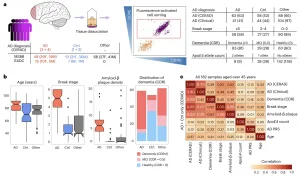Tackling Tuberculosis: The Promise of AI in Treatment
Tuberculosis (TB) remains a significant global health challenge, demanding innovative approaches for more effective diagnosis and treatment. Traditional methods face hurdles, but cutting-edge artificial intelligence (AI) techniques are emerging as promising tools to revolutionize TB care.
The Challenges of Traditional TB Treatment
Treating TB is often a long and complex process, fraught with several difficulties:
- Lengthy Treatment Durations: TB treatment typically requires several months of consistent medication.
- Adverse Drug Effects: The medications used can cause significant side effects, impacting patient adherence.
- Drug Resistance: The rise of drug-resistant TB strains complicates treatment and necessitates more aggressive and costly therapies.
- Diagnostic Delays: Traditional diagnostic methods can be slow, hindering early intervention and potentially leading to further spread.
AI’s Role in Revolutionizing TB Treatment
AI offers solutions to overcome these challenges by improving various aspects of TB management:
Enhanced Diagnostics
- AI-powered Image Analysis: AI algorithms can analyze chest X-rays and CT scans with remarkable accuracy, detecting subtle signs of TB that might be missed by human eyes.
- Faster Results: AI can significantly reduce the time required for diagnosis, allowing for quicker treatment initiation.
- Improved Accuracy: AI can minimize false negatives and false positives, ensuring appropriate treatment strategies.
Personalized Treatment Plans
- Predictive Modeling: AI can analyze patient data to predict treatment outcomes and identify individuals at high risk of treatment failure.
- Tailored Therapies: This information can be used to personalize treatment regimens, optimizing drug selection and dosages.
- Improved Adherence: AI-driven tools can monitor patient adherence to medication and provide timely reminders and support.
Drug Discovery and Development
- Accelerated Research: AI can accelerate the drug discovery process by identifying potential drug targets and predicting the efficacy of new compounds.
- Reduced Costs: By streamlining the research and development pipeline, AI can help reduce the costs associated with developing new TB drugs.
Final Overview
AI holds immense potential for transforming TB treatment. By enhancing diagnostics, personalizing treatment, and accelerating drug discovery, AI can play a crucial role in the fight against this global health threat, ultimately leading to more effective and efficient TB care for all.




+ There are no comments
Add yours